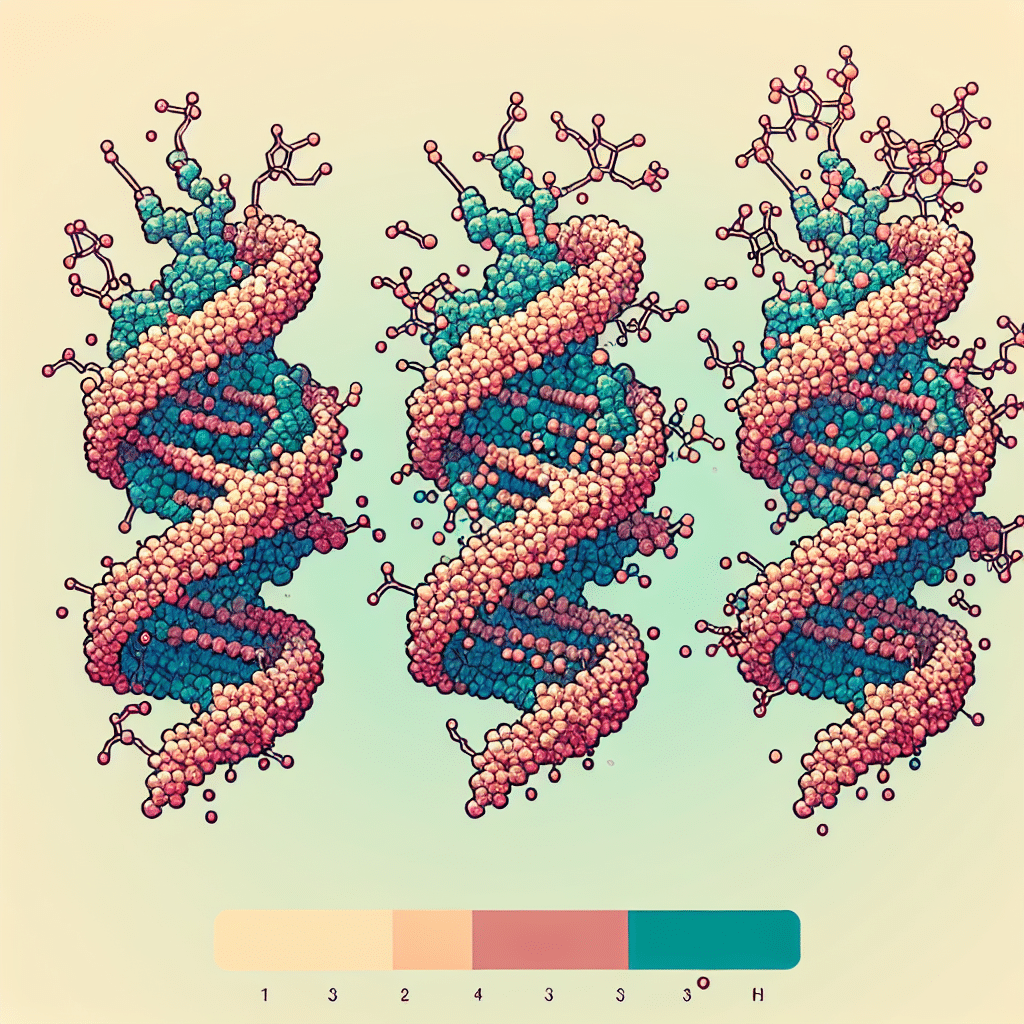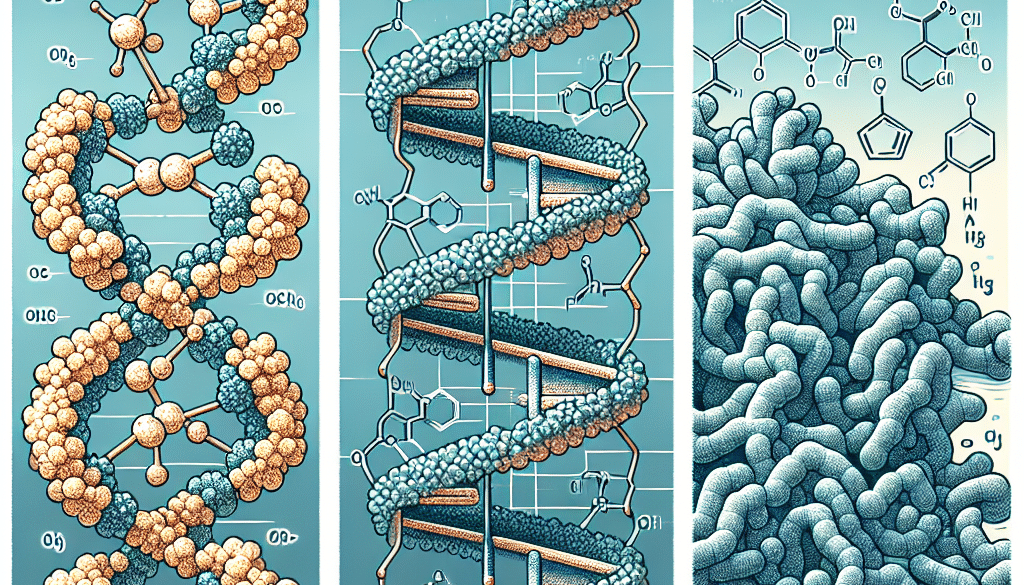What Are The Three Types Of Peptides?
-
Table of Contents
- Understanding the Three Types of Peptides: A Comprehensive Guide
- Oligopeptides: The Short Chains of Potency
- Polypeptides: The Versatile Performers
- Neuropeptides: The Brain’s Chemical Messengers
- Applications and Therapeutic Potential of Peptides
- Conclusion: The Power of Peptides in Science and Medicine
- Discover High-Quality Peptides with ETprotein
Understanding the Three Types of Peptides: A Comprehensive Guide

Peptides are small chains of amino acids that are building blocks of proteins in the body. They play a crucial role in various biological functions, including hormone production, immune response, and cell signaling. Peptides are classified into three main types based on their structure and function: oligopeptides, polypeptides, and neuropeptides. This article delves into the characteristics, functions, and applications of each peptide type, providing valuable insights into their significance in health and disease.
Oligopeptides: The Short Chains of Potency
Oligopeptides are short chains of amino acids, typically comprising 2 to 20 units. They are formed by the condensation of a small number of amino acids through peptide bonds. Due to their size, oligopeptides can be quickly synthesized and absorbed by the body, making them particularly useful in therapeutic applications.
- Dipeptides: Consist of two amino acids. An example is carnosine, which has antioxidant properties and is found in muscle and brain tissues.
- Tripeptides: Made up of three amino acids. Glutathione, a tripeptide, is a powerful antioxidant that protects cells from damage.
- Tetrapeptides: Chains of four amino acids. An example is tetragastrin, which stimulates gastric acid secretion.
Oligopeptides are known for their role in signaling and regulatory functions within the body. They can act as hormones, neurotransmitters, or modulators of various biological processes. For instance, the oligopeptide hormone oxytocin plays a vital role in childbirth and lactation.
Polypeptides: The Versatile Performers
Polypeptides are longer chains of amino acids, typically containing more than 20 and up to 50 amino acid residues. They are the precursors to proteins and can perform a wide range of functions depending on their sequence and structure.
- Enzymes: Many enzymes are polypeptides that catalyze biochemical reactions, such as digestive enzymes like trypsin and chymotrypsin.
- Hormones: Some hormones, like insulin, are polypeptides that regulate metabolic processes.
- Structural Components: Polypeptides like collagen provide structural support to tissues and organs.
Polypeptides have been extensively studied for their therapeutic potential. Insulin, for example, is a well-known polypeptide used in the treatment of diabetes. The ability to synthesize polypeptides through recombinant DNA technology has revolutionized the pharmaceutical industry, allowing for the production of bio-identical hormones and enzymes for medical use.
Neuropeptides: The Brain’s Chemical Messengers
Neuropeptides are small protein-like molecules used by neurons to communicate with each other. They are typically composed of between 3 and 36 amino acid residues and are released by neurons in response to electrical activity. Neuropeptides can act as neurotransmitters, neuromodulators, or neurohormones, influencing a wide range of physiological processes.
- Neurotransmitters: Neuropeptides like substance P are involved in transmitting pain signals in the nervous system.
- Neuromodulators: Neuropeptides such as somatostatin can modulate the activity of other neurotransmitters.
- Neurohormones: Hormones like vasopressin, released into the bloodstream by neurosecretory cells, regulate water balance and blood pressure.
Neuropeptides are crucial for brain function and have been implicated in various neurological disorders. Research into neuropeptides has led to the development of new treatments for conditions such as chronic pain, depression, and anxiety.
Applications and Therapeutic Potential of Peptides
The diverse functions of peptides make them valuable in both research and medicine. They have been used to develop treatments for a range of diseases, including cancer, diabetes, and infectious diseases. Peptides can also serve as biomarkers for disease diagnosis and as vaccines to elicit an immune response.
In the cosmetic industry, peptides are used for their anti-aging properties, promoting skin repair and collagen production. In sports nutrition, specific peptides are marketed for their potential to enhance muscle growth and recovery.
Conclusion: The Power of Peptides in Science and Medicine
Peptides are versatile molecules that play essential roles in the body. The three types of peptides—oligopeptides, polypeptides, and neuropeptides—each have unique functions and applications. Understanding these peptides is crucial for advancing medical research and developing new therapies. As science continues to uncover the complexities of peptides, their potential to improve human health remains vast and promising.
Discover High-Quality Peptides with ETprotein
If you’re looking for premium peptide products, ETprotein offers a range of high-quality protein and peptide solutions. Their extensive selection includes organic rice protein, pea protein, and various seed proteins, as well as L-(+)-Ergothioneine (EGT) in different grades suitable for pharmaceutical, food, and cosmetic applications. With a commitment to non-GMO, allergen-free products and high purity standards, ETprotein is your go-to source for all your peptide needs.
About ETprotein:
ETprotein, a reputable protein and L-(+)-Ergothioneine (EGT) Chinese factory manufacturer and supplier, is renowned for producing, stocking, exporting, and delivering the highest quality organic bulk vegan proteins and L-(+)-Ergothioneine. They include Organic rice protein, clear rice protein, pea protein, clear pea protein, watermelon seed protein, pumpkin seed protein, sunflower seed protein, mung bean protein, peanut protein, and L-(+)-Ergothioneine EGT Pharmaceutical grade, L-(+)-Ergothioneine EGT food grade, L-(+)-Ergothioneine EGT cosmetic grade, L-(+)-Ergothioneine EGT reference grade and L-(+)-Ergothioneine EGT standard. Their offerings, characterized by a neutral taste, non-GMO, allergen-free attributes, with L-(+)-Ergothioneine purity over 98%, 99%, cater to a diverse range of industries. They serve nutraceutical, pharmaceutical, cosmeceutical, veterinary, as well as food and beverage finished product distributors, traders, and manufacturers across Europe, USA, Canada, Australia, Thailand, Japan, Korea, Brazil, and Chile, among others.
ETprotein specialization includes exporting and delivering tailor-made protein powder and finished nutritional supplements. Their extensive product range covers sectors like Food and Beverage, Sports Nutrition, Weight Management, Dietary Supplements, Health and Wellness Products, and Infant Formula, ensuring comprehensive solutions to meet all your protein needs.
As a trusted company by leading global food and beverage brands and Fortune 500 companies, ETprotein reinforces China’s reputation in the global arena. For more information or to sample their products, please contact them and email sales(at)ETprotein.com today.












